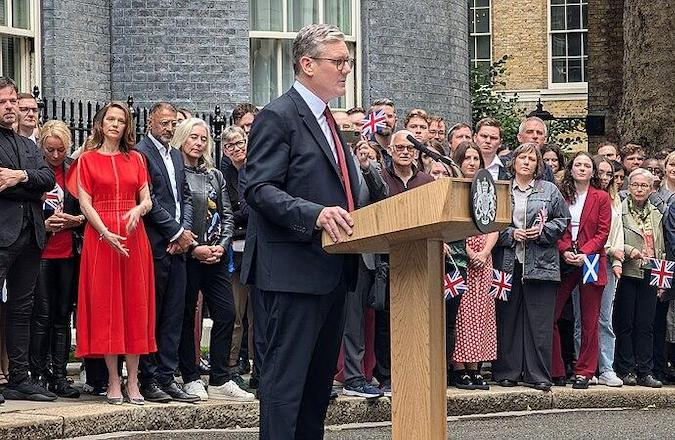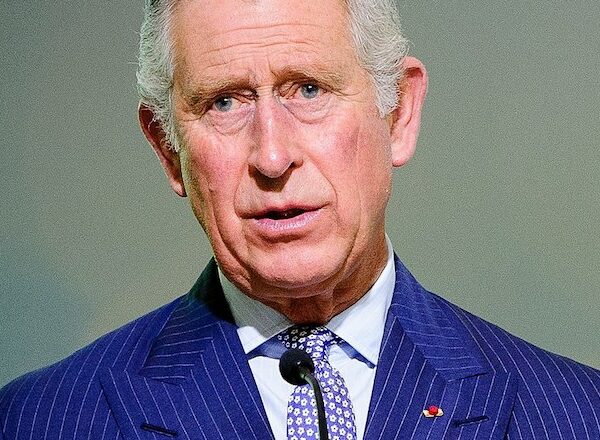As the UK woke on the 5th of July to the news of a Labour landslide and new Government, thoughts across the country must have turned to what this would mean for the future. This is especially true for the renewable energy industry, as this was one of the key areas of differing policy between the Conservatives and Labour, in an election arguably driven more by trust than policy.
It has become clear in the past week that Keir Starmer and his cabinet have no intention of waiting around on energy and net zero policy, with several key announcements made so far, including changes to the NPPF and quick decisions by the Energy Secretary.
Figure 1: Keir Starmer on the steps of Downing Street. [1]
A New Energy Secretary
One of the more obvious changes affecting the industry is the change of Minister in the Department for Energy Security and Net Zero, with Claire Coutinho making way for Ed Miliband, who previously served as the Shadow Minister since November 2021.
Since his appointment, Miliband has not been shy to make big decisions by granting consent for a number of large-scale solar projects, including Sunnica Solar Farm in Suffolk. [2]
Changes to the NPPF
Another key and quick change made by the Labour government has been to remove two contentious footnotes within the NPPF which act as a de facto ban on onshore wind developments in England. This was announced in Rachel Reeves’ first speech as Chancellor of the Exchequer, showing her and Labour’s commitment to addressing issues with the planning system [3].
This is something which many developers were expecting, but the change may serve to allow England to catch up with the rest of the UK with regard to onshore wind, though this will of course take time. Another key challenge which remains for renewable energy projects is the availability of grid connections, which Labour have previously committed to tackle but are currently holding up over 100 GW of wind projects in the UK. [4]
GB Energy
One striking commitment in Labour’s manifesto was their pledge to establish a new state-owned energy company called GB Energy to drive investment in renewable energy. The company will be based in Scotland, and although it will not sell energy directly to householders, it is expected to generate energy and drive investment in emerging technologies.
This comes despite a high-profile policy to invest £28 billion a year in green investments being ditched in February, with the party claiming that the policy was unaffordable given the economic climate. [5]
It is yet to be seen exactly how GB Energy will function or indeed the effects of Labour’s other announcements in recent days and weeks, but the mood surrounding the renewables industry seems cautiously positive for now.
Considering Onshore Wind?
If you are working on an onshore wind project, Pager Power can carry out technical assessments relating to aviation, telecommunications, TV and radio reception, shadow flicker and more. See our wind services page for more information or get in touch with our team who can help advise on our services.
References
[1] Parrot of Doom (5th July 2024) from WikiCommons. Accessed on: 15th July 2024.
[2] Alice Cunningham, “Sunnica £600m solar farm approved despite objections” (12th July 2024), BBC News (accessed at: https://www.bbc.co.uk/news/articles/cgxqn9v0jdxo)
[3] Faisal Islam and Daniel Thomas, “Reeves to bring back housebuilding targets” (8th July 2024), BBC News (accessed at: https://www.bbc.co.uk/news/articles/ckkg2l1rpr4o)
[4] Grid access challenges for wind farms in Europe, Wind Europe Intelligence Platform (24th June 2024) (accessed at: https://windeurope.org/intelligence-platform/product/grid-access-challenges-for-wind-farms-in-europe/)
[5] Paul Seddon, “Keir Starmer defends Labour U-turn on £28bn green spending” (9th February 2024), BBC News (accessed at: https://www.bbc.co.uk/news/uk-politics-68244772)




